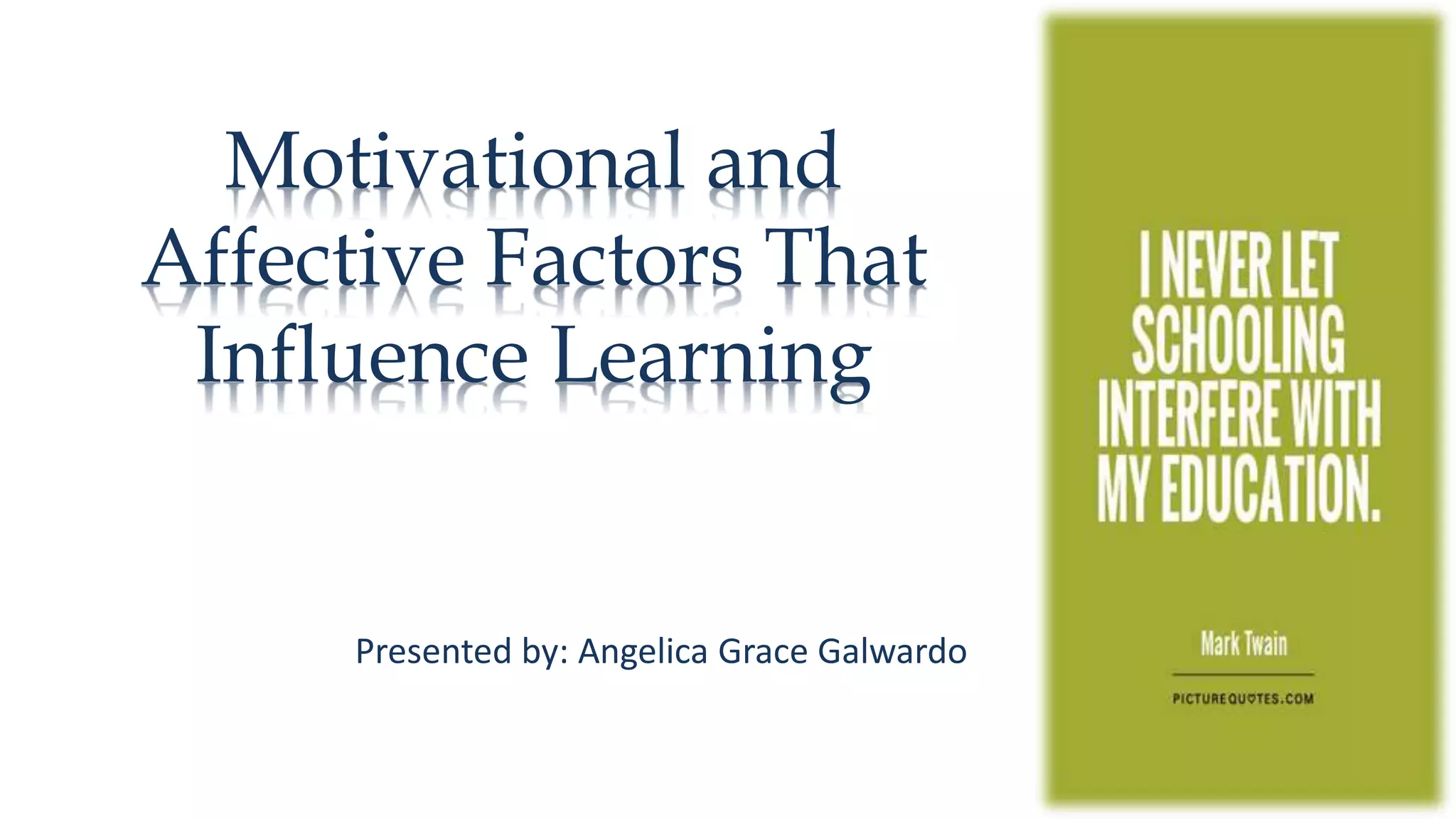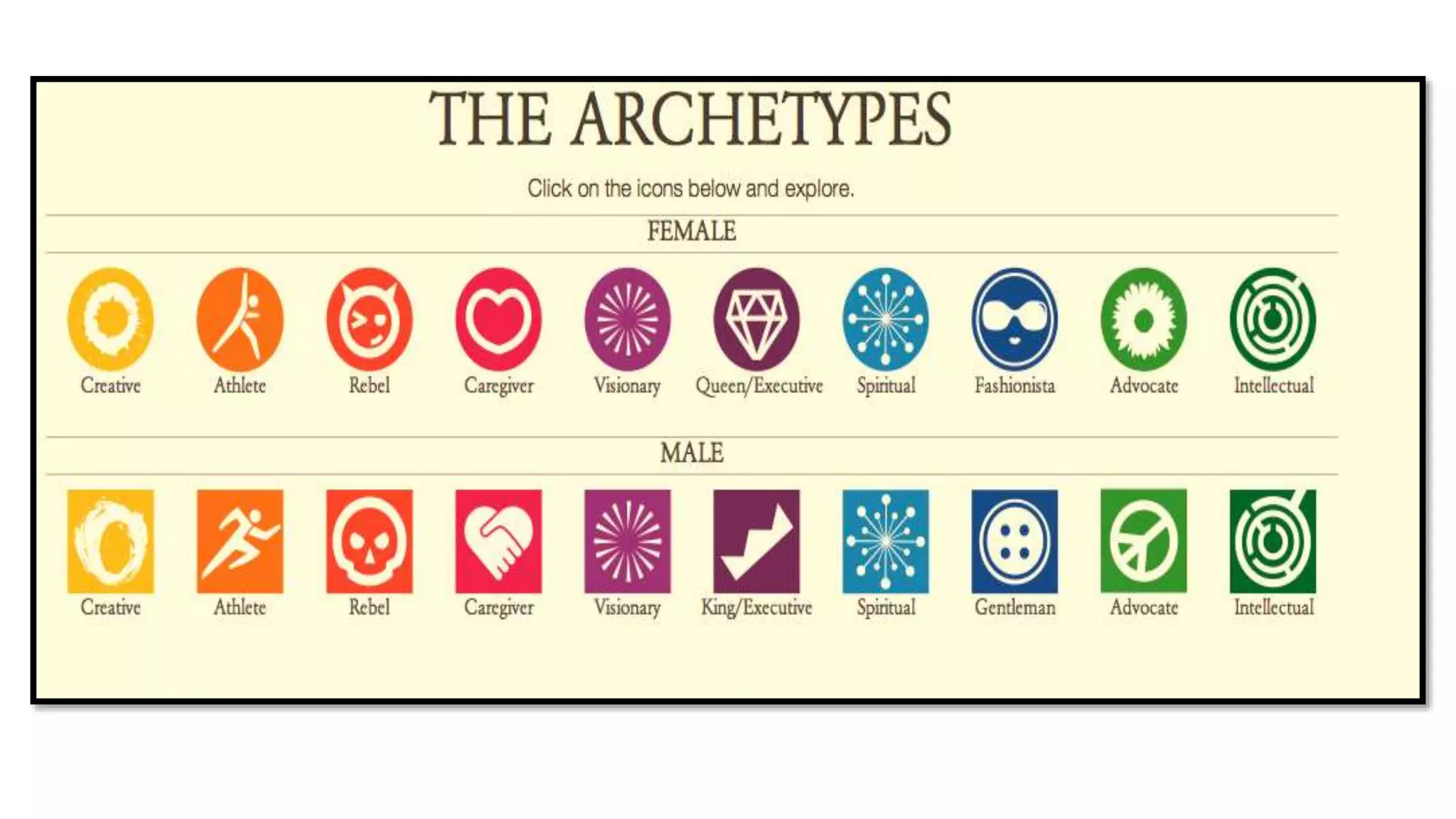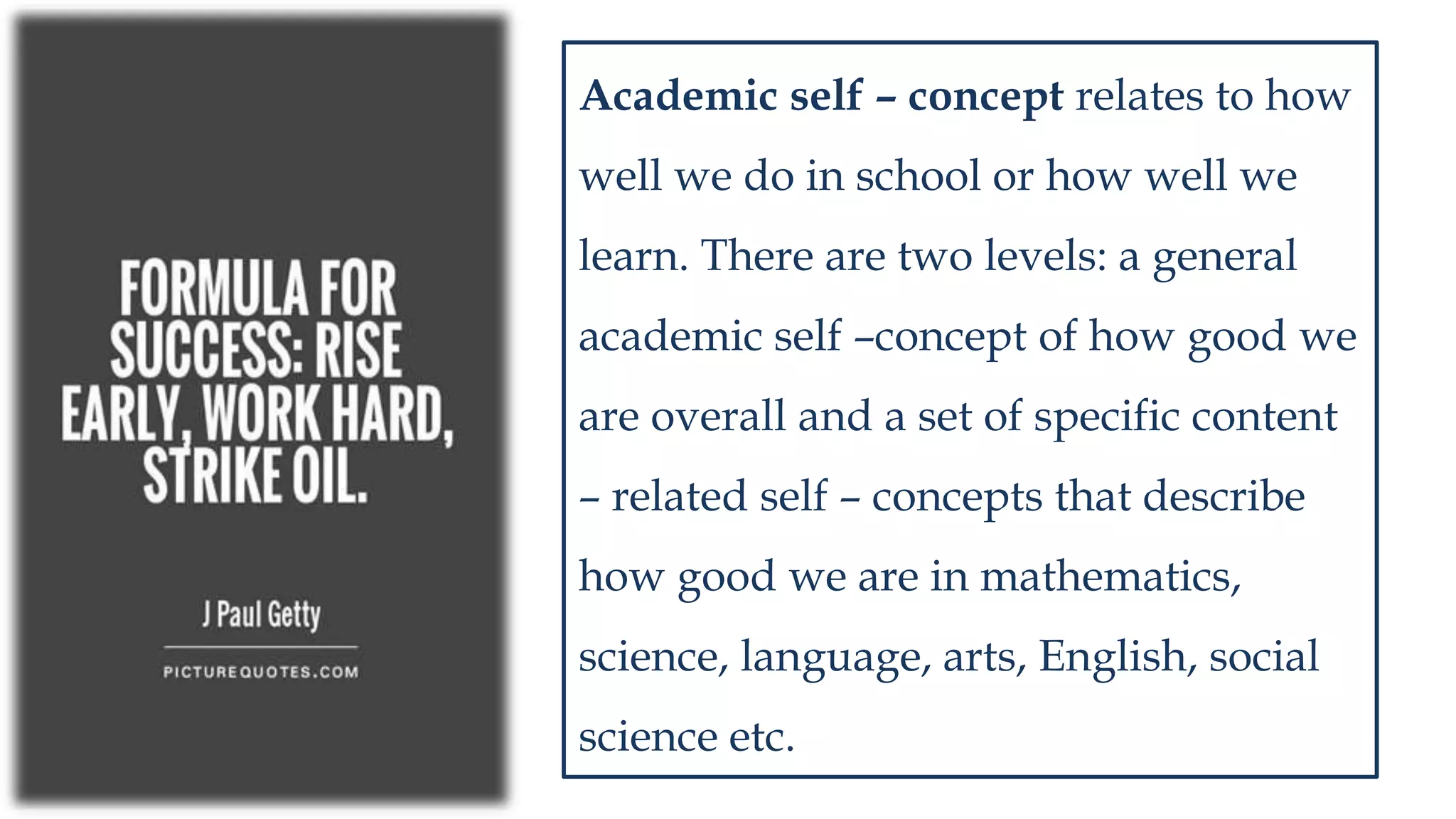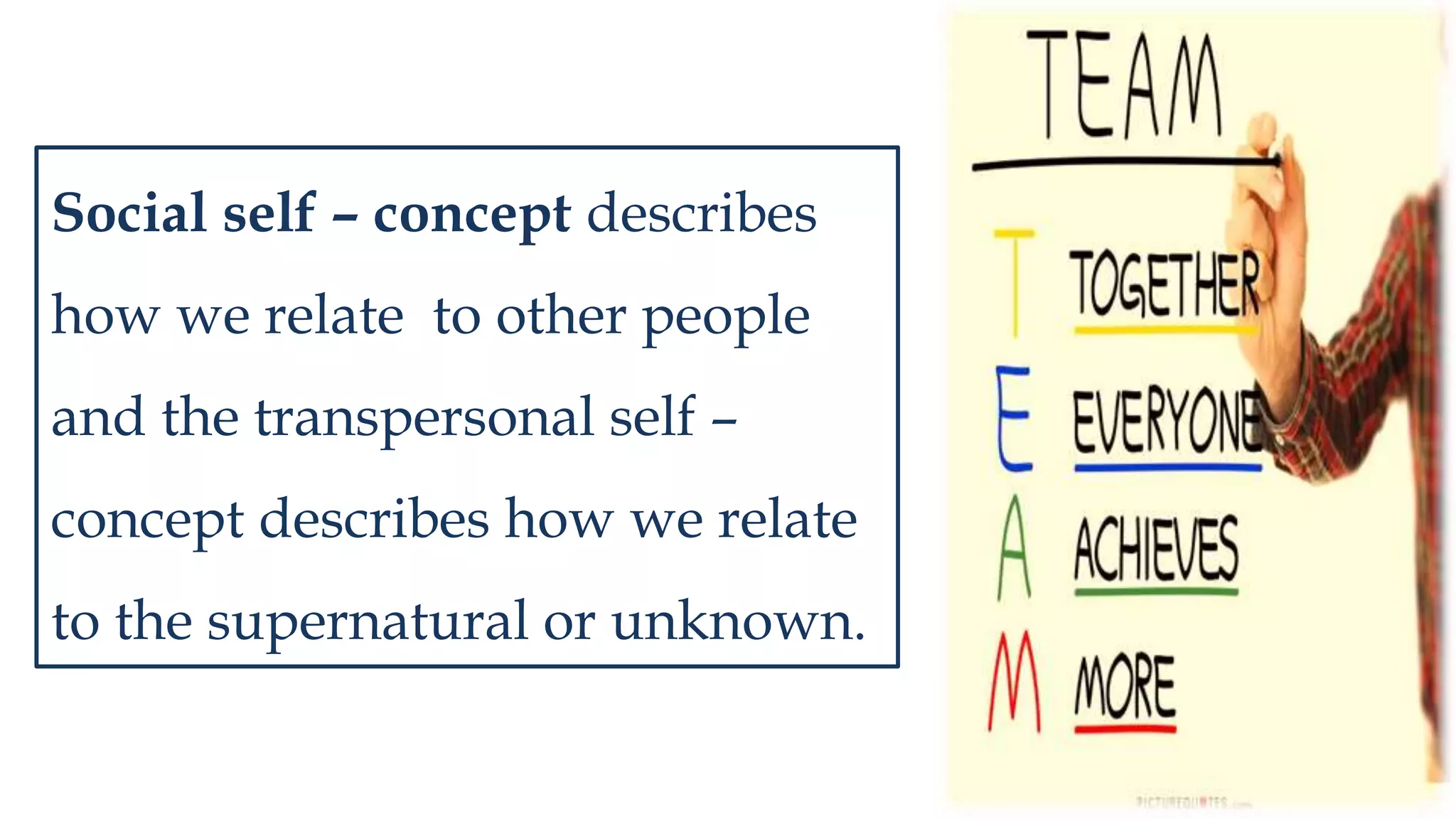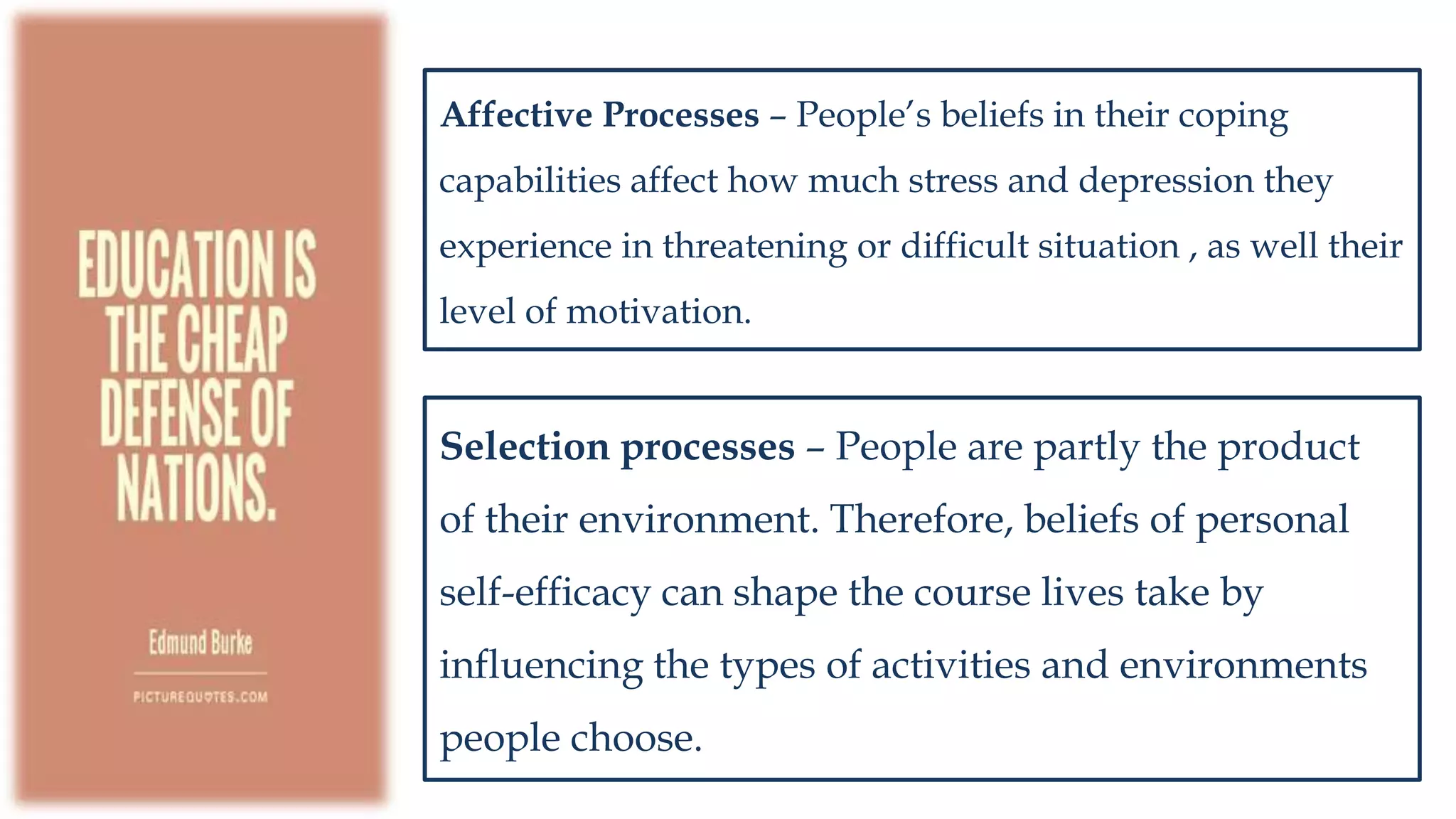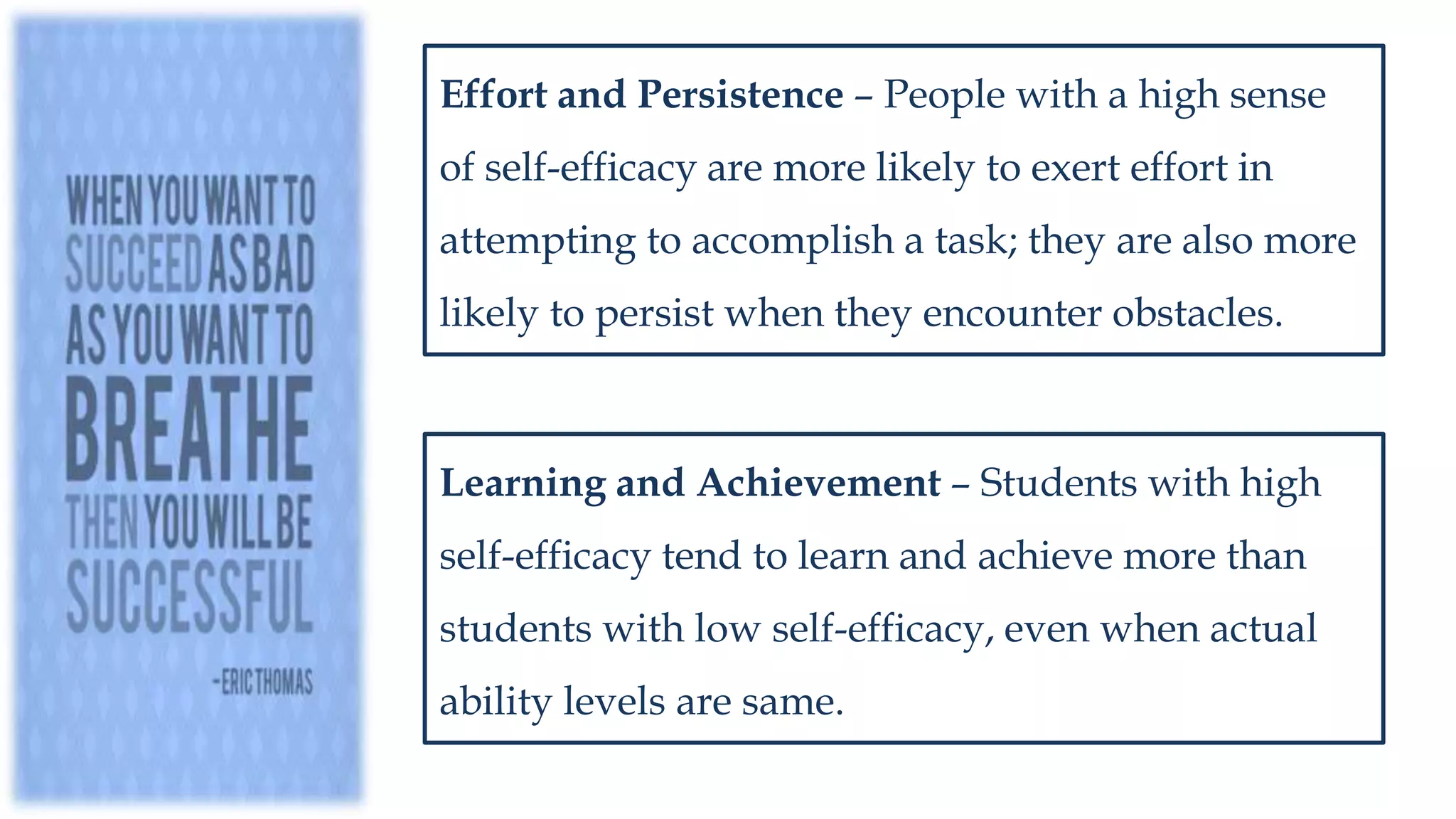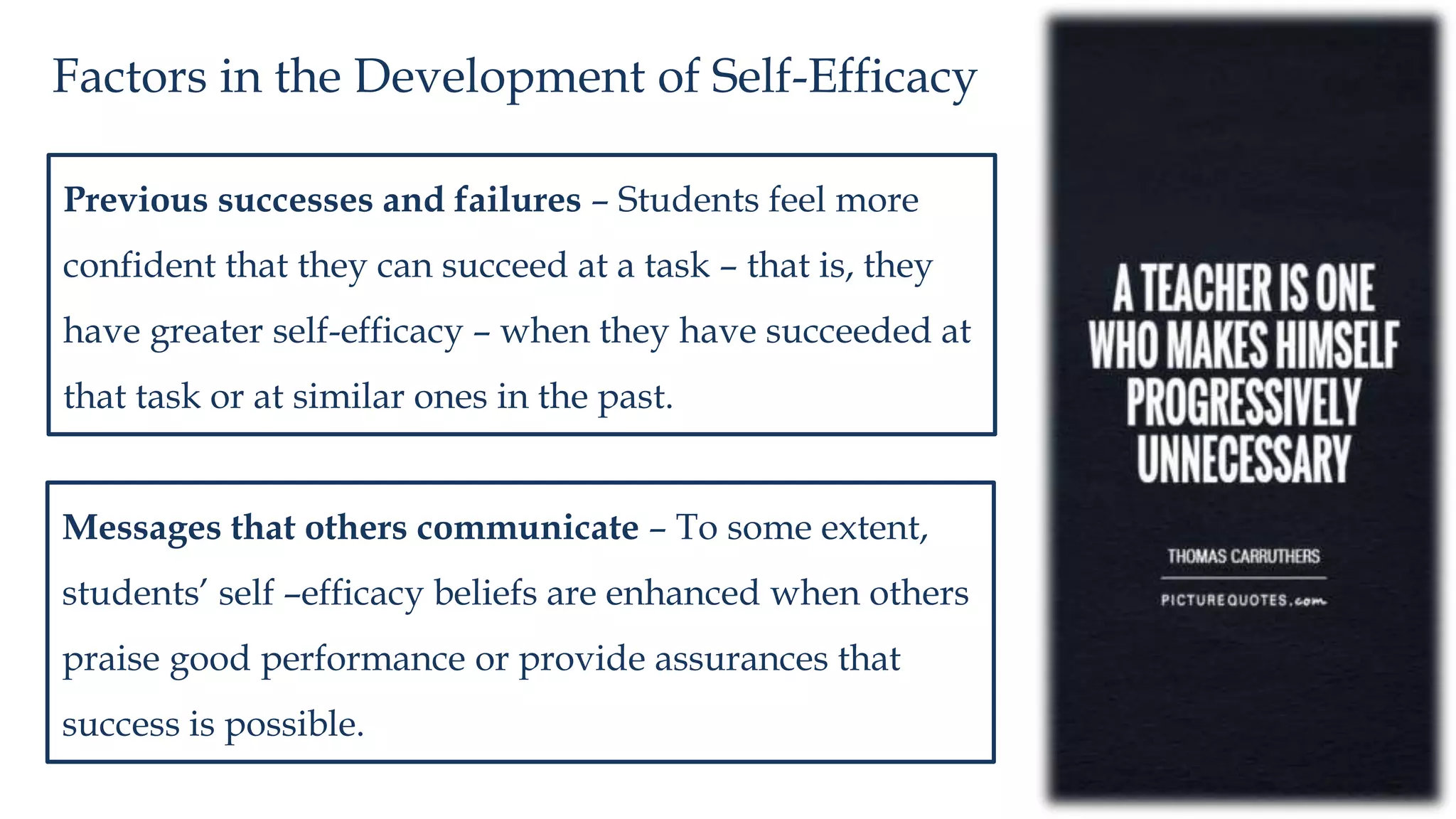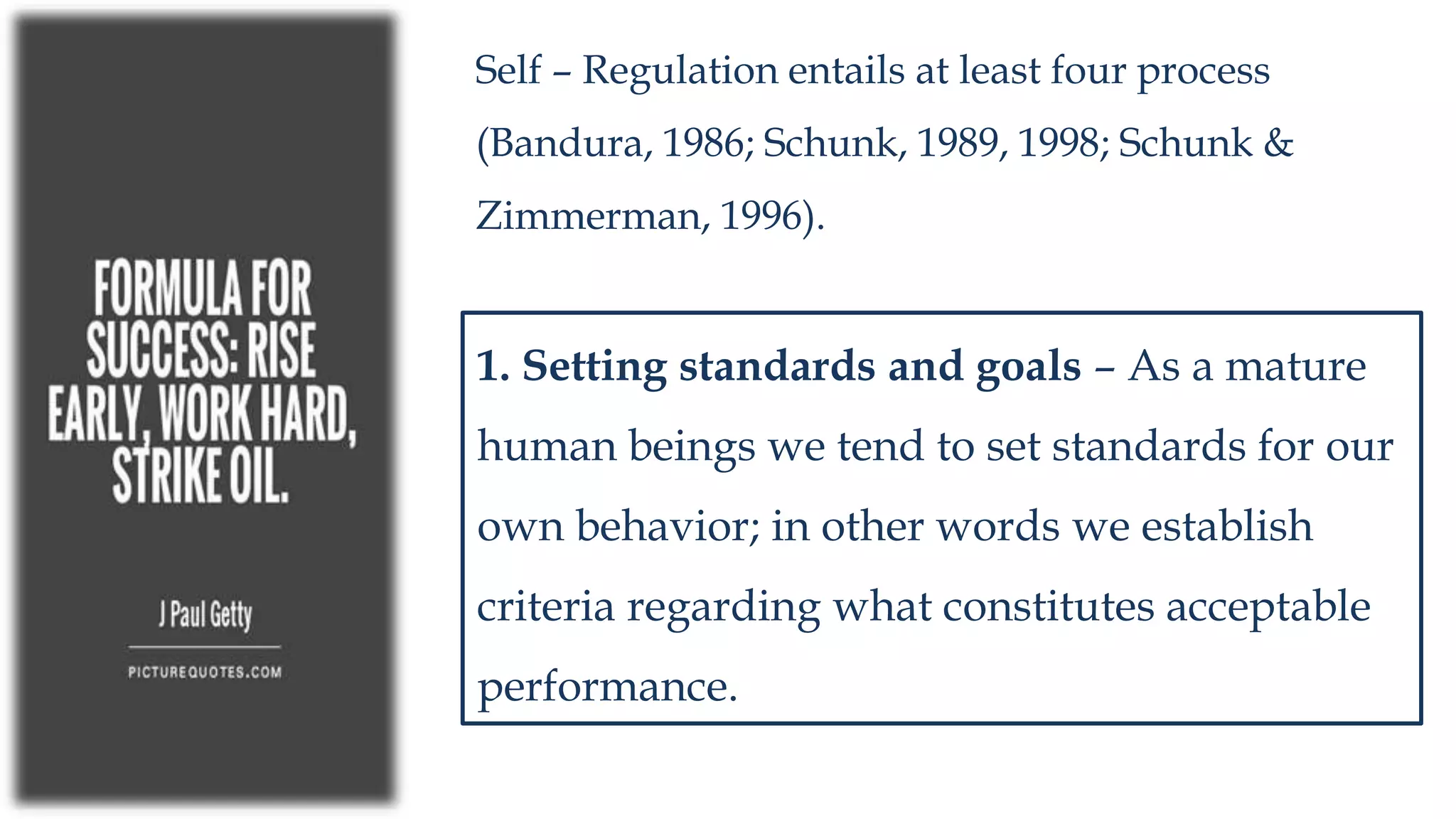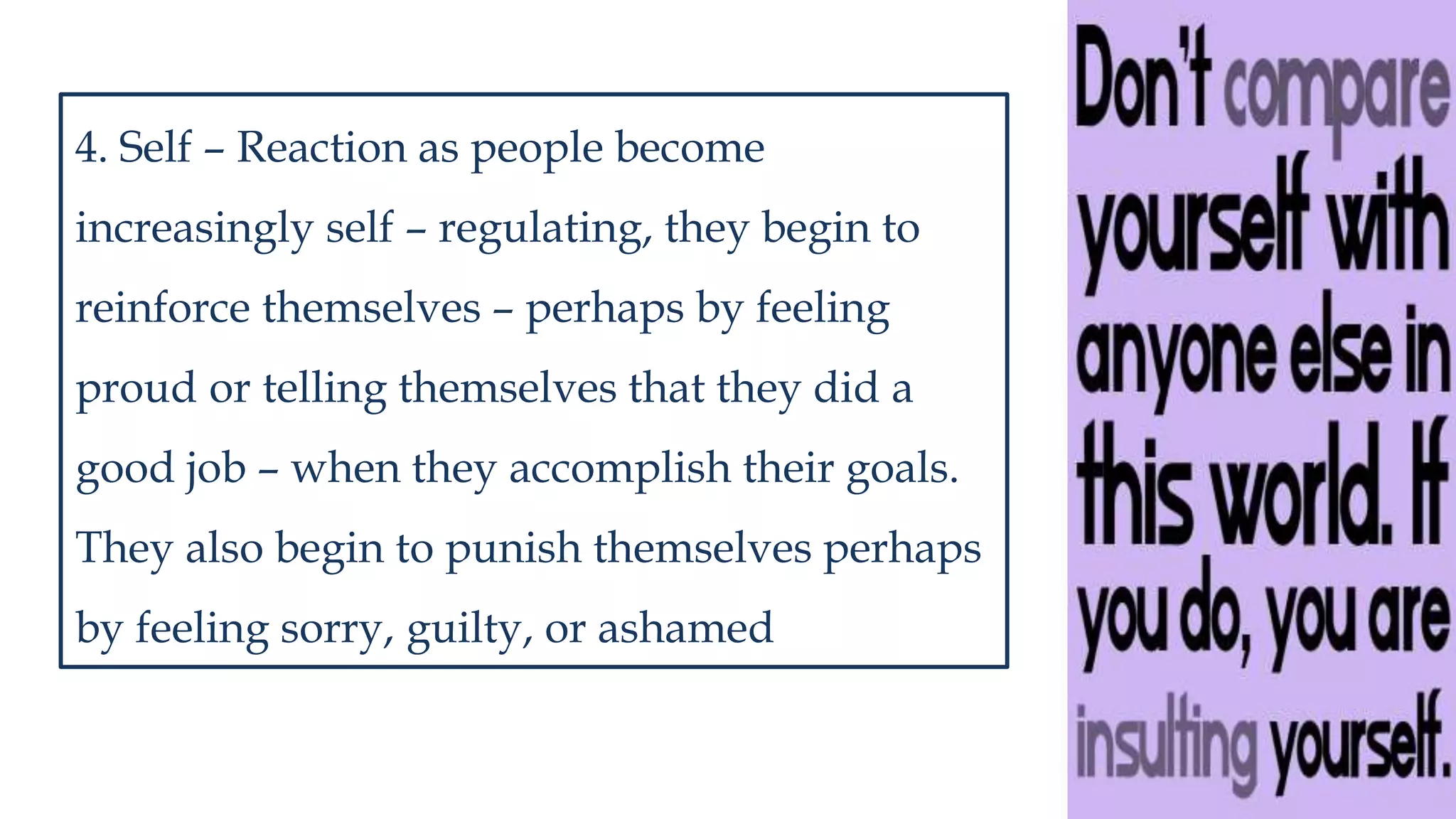This document discusses factors that influence learning, including self-concept, self-efficacy, and self-regulation. It defines self-concept as one's self-image and self-efficacy as one's belief in their ability to succeed. Psychologist Albert Bandura identified four ways self-efficacy affects behavior: choice of activities, goals, effort/persistence, and learning/achievement. Self-regulation refers to directing one's thoughts and actions towards goals and involves setting standards, self-observation, self-judgment, and self-reaction. Technology can increase learner motivation by boosting self-efficacy as students develop expertise using various tools.
